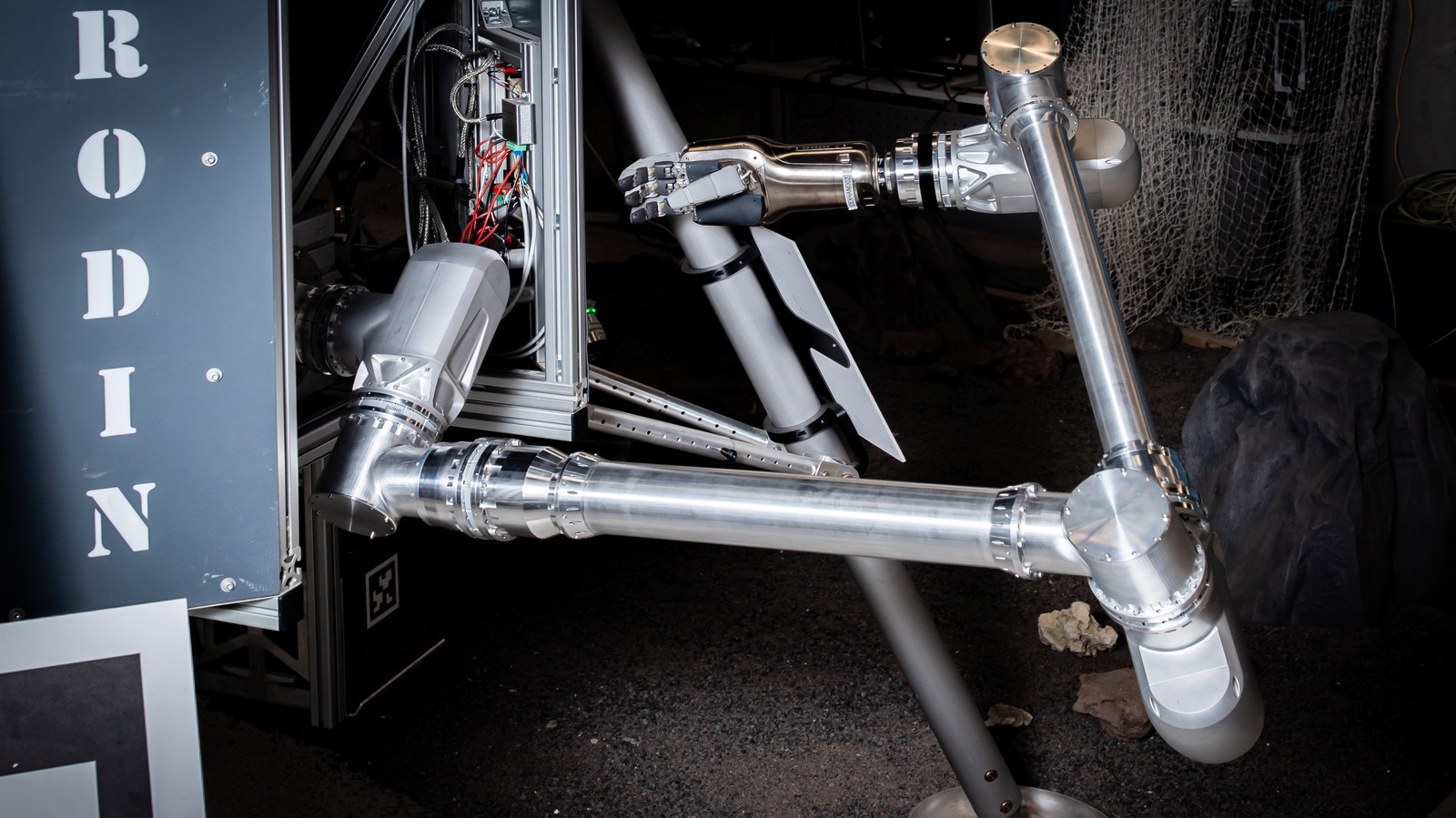STABLE
As part of the STABLE project (Sample Transfer Arm Breadboard Lander Evaluation), a phase A study for the European Space Agency, DLR researchers are developing the BreadBoard of an arm for the Sample Retrieval Lander. In a later Mars mission, this will transfer the samples collected by a Mars rover to a rocket for further transport to Earth. The design of the arm is based on that of the modular robotic arm TINA, which was also developed at DLR.
Laufzeit: | 2019-06-03 bis 2021-06-30 |
Projektpartner: | |
Anwendungsfelder: | Space robotics |
Förderung: | ESA |
Projektdetails
STABLE supports a Mars Sample Return (MSR) mission. This is the return of samples, such as Martian rocks and sands, from Mars to Earth. This is part of NASA's Mars Exploration Program and is aimed at a long-term effort of robotic exploration of the Red Planet.
The concepts are partly in competition with manned Mars missions due to the use of robotic systems, but are often intended as preparation for manned missions. TINA is the technological basis of the STABLE project. In the course of this project, DLR is developing a so-called BreadBoard for the arm of the Sample Transfer Lander.
The BreadBoard comprises an arm of up to 2m in length which is mounted on the lander. The arm will be equipped with a gripper from OHB and several cameras to enable visual serving. The goal of the project is to demonstrate all tasks to be performed in a fully autonomous mode. The tasks include:
- Locating the rover parked in front of the lander.
- Collecting samples from the Sample Fetch Rover (SFR) or the M2020 rover.
- The inspection of the samples with the help of a camera.
- Loading the samples into the rocket
- Closing the rocket door
- The filming of the rocket launch
Using the samples brought to Earth, scientists on Earth will look for signs of past life on Mars and conduct many other studies to advance understanding of conditions on Mars. In doing so, scientists will have access to the most advanced equipment on Earth.

